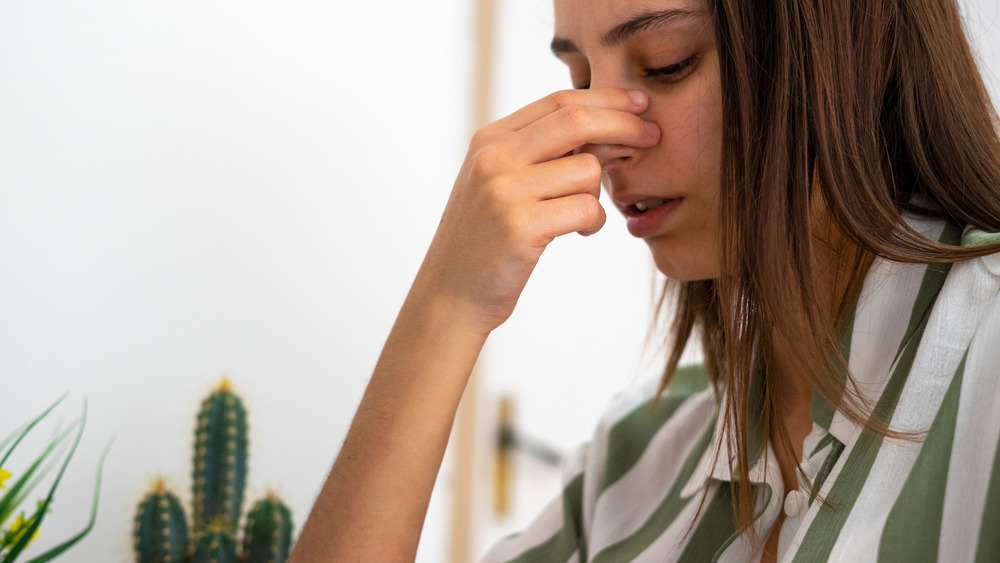The Real Reason You Get Nosebleeds
Blood is not usually something you hope or expect to see after wiping your nose, but it's a more common occurrence than you might think. Nosebleeds will affect over 60 percent of people at some point in their lives (via Medical News Today). So what causes a nosebleed and how can you prevent them?
According to doctors at Harvard Medical School, nosebleeds happen when very small blood vessels burst (via Harvard Health Publishing). There are a number of reasons this might happen, but the most common is exposure to dry air. Allergies, bleeding disorders, having a cold or sinus infection, and even using certain drugs or prescription medications can cause your nasal membranes to dry out and become more prone to bleeding (via Mayo Clinic). Other causes may include sticking your finger or other objects up your nose, which are common reasons that small children have nosebleeds. Rare causes of nosebleeds include nasal polyps, nasal tumors, alcohol use, and even cancer.
What you can do about nosebleeds
Most nosebleeds happen in the front of your nose along the septum, or the tissue that divides your two nostrils. These anterior bleeds tend to be lighter and less serious than bleeds that happen at the back of your nose, which are called posterior bleeds. A sudden injury to the nose or high blood pressure could result in arterial damage and cause blood to flow into the back of the throat. While anterior bleeds are more common in children, older adults are more likely to experience posterior bleeds (via Medical News Today).
To prevent future nosebleeds, try using a humidifier and saline spray to keep your nasal membranes from drying out. Keep your fingers out of your nose, and consider avoiding medications that might increase blood flow. If you do have a nosebleed, stay upright to slow the flow of blood to your nose. Apply pressure by gently pinching the outside of your nose, and if your nose is still bleeding after 20 minutes, it's a good idea to seek medical attention. Posterior nosebleeds should always be treated by a doctor (via Healthline).


